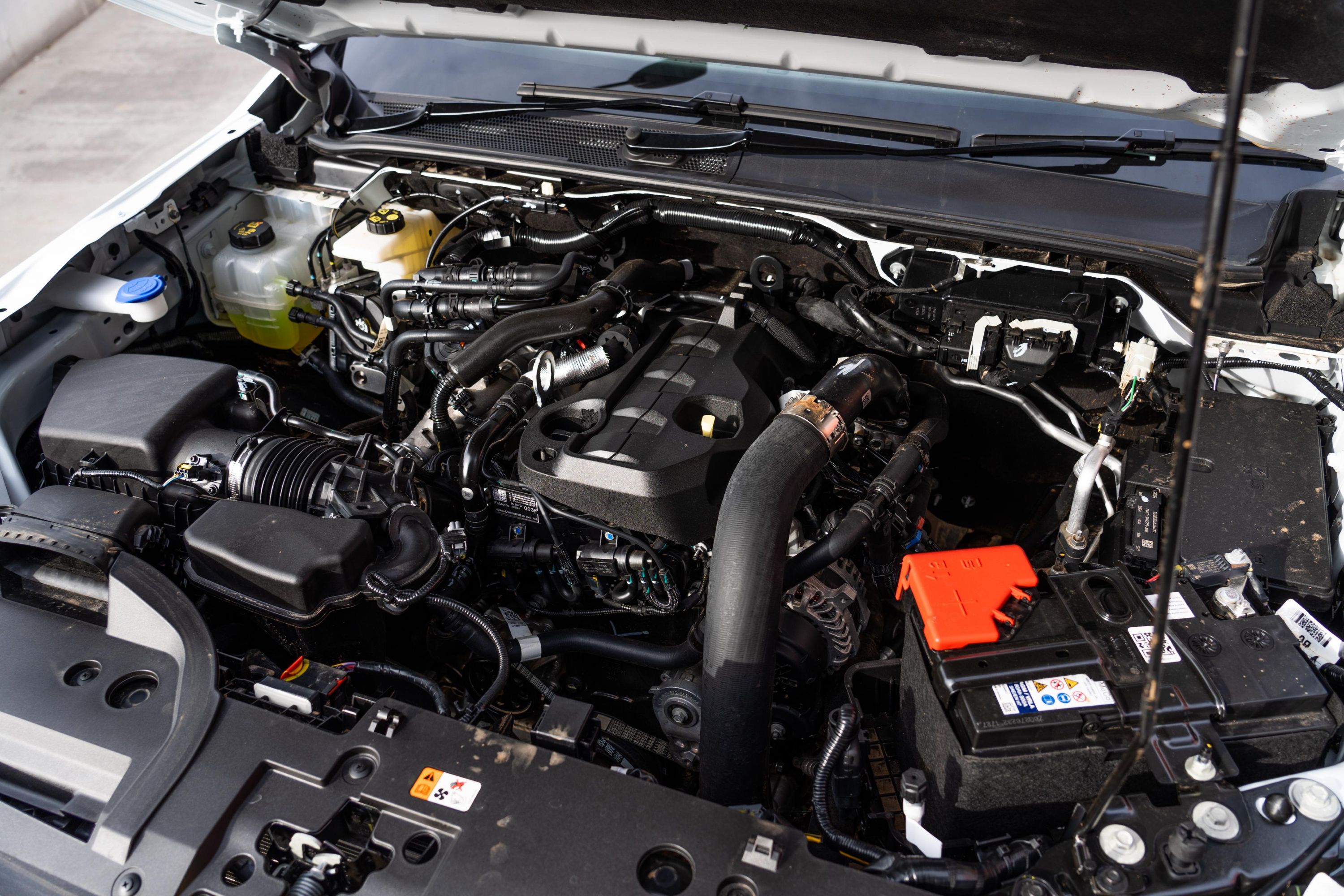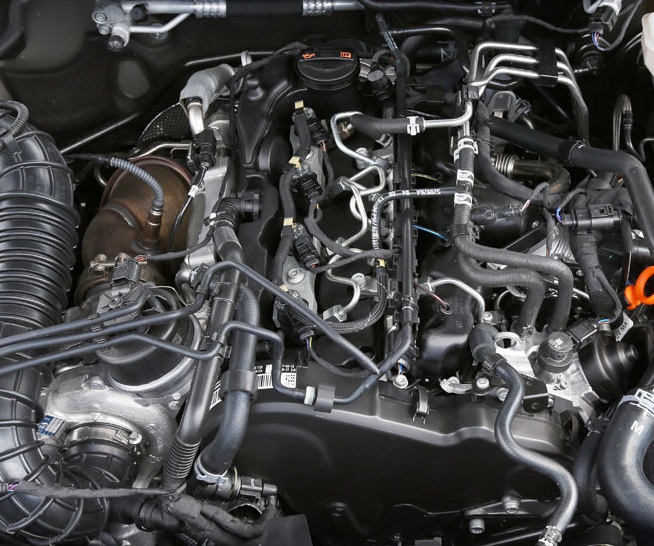Shop the most recent Amarok Engine for Sale-- Exceptional Costs and High-Quality Engines
Shop the most recent Amarok Engine for Sale-- Exceptional Costs and High-Quality Engines
Blog Article
Browsing the Process of Engine Option: Key Aspects to Consider
The procedure of engine choice is a complex venture that demands cautious examination of several vital aspects to guarantee placement with operational goals. Efficiency requirements, fuel performance, and budgetary restrictions are simply the beginning; considerations around environmental impact and upkeep support play a crucial duty in the decision-making framework. Recognizing just how each of these aspects communicates can considerably influence the efficiency and long life of your financial investment. Nonetheless, the intricacies of each aspect might not be immediately obvious, triggering further evaluation of exactly how to strategically browse this complex landscape.
Efficiency Demands
When choosing an engine, it is essential to establish clear performance needs that line up with the desired application. Efficiency demands include an array of aspects, including power output, torque features, and responsiveness, which must be tailored to the particular needs of the lorry or equipment in concern.
Power outcome, generally measured in horse power, determines the engine's capacity to move a car or do a task efficiently. Torque, on the various other hand, is vital for applications needing strong preliminary velocity or heavy lifting abilities. An understanding of the operational setting is additionally important; for example, engines made for off-road applications may require different efficiency features contrasted to those meant for highway usage.
In addition, consider the functional tons and responsibility cycle, as these elements influence the engine's long life and integrity. In high-load circumstances, a durable engine style might be necessary to stop early wear or failing. Furthermore, efficiency needs should additionally integrate factors to consider for exhaust requirements and regulatory compliance, specifically in areas with rigid ecological laws. By defining these efficiency parameters early in the choice process, stakeholders can make educated choices that improve total functional efficiency and efficiency.
Gas Effectiveness Factors To Consider
While performance needs are vital, gas efficiency is just as essential in the engine selection procedure, as it directly affects operating prices and environmental sustainability. Fuel-efficient engines consume much less fuel per device of work performed, which not only lowers overall expense however also lessens greenhouse gas discharges. As companies significantly focus on sustainability, picking an engine that enhances fuel efficiency can boost business responsibility and compliance with ecological guidelines.
When reviewing fuel effectiveness, it is necessary to take into consideration the engine's design and modern technology - amarok engine for sale. Innovations such as turbocharging, direct fuel shot, and hybrid systems can dramatically improve fuel economy. In addition, comprehending the operating conditions and duty cycles of the engine application is important; engines might do in different ways under varying lots and speeds
Additionally, makers usually provide gas intake data that can be used to contrast different engine options. It is recommended to assess these specs in real-world scenarios to make certain precision. Lastly, the type of gas made use of can likewise affect gas performance; alternate gas might offer better efficiency and reduced exhausts. In recap, fuel performance is a multi-faceted factor to consider that calls for comprehensive analysis during the engine selection procedure.
Budget Plan and Expense Analysis
Budget and cost evaluation offers as an essential element in the engine choice procedure, influencing both short-term investments and long-term functional costs. When examining potential engines, it is necessary to consider not only the initial purchase rate however additionally the complete expense of ownership, which includes installment, maintenance, gas usage, and prospective downtime.
A comprehensive analysis must begin with the upfront expenses linked with the engine, including needed modifications or supplementary equipment. Nonetheless, focusing solely on initial expenditures may result in misguided choices. Assessing operating expense over the engine's life-span is just as vital, as a lot more pricey engines may provide premium fuel performance or minimized maintenance demands, ultimately bring about set you back financial savings.

Environmental Impact Variables
Recognizing environmental influence variables is crucial in the engine selection process, as sustainability factors to consider have come to be significantly essential for both regulative conformity and business responsibility. Organizations must examine the exhausts created by different engine kinds, including co2, nitrogen oxides, particle matter, and unburned hydrocarbons. These discharges contribute substantially to air contamination and environment change, demanding a careful evaluation of the engine's environmental footprint.
In addition, gas kind plays an essential duty in environmental impact. Engines powered by renewable energy sources, such as biofuels or hydrogen, have a tendency to have a lower ecological influence contrasted to traditional nonrenewable fuel sources. Furthermore, the lifecycle assessment of the engine, from manufacturing via procedure to disposal, must be taken into consideration to comprehend the complete range of its ecological ramifications.

Maintenance and Assistance Choices
When choosing an engine, the accessibility of maintenance and assistance choices is a crucial factor to consider that can significantly affect functional effectiveness and durability. Comprehensive upkeep intends make certain that the engine operates at peak performance and reduces unexpected downtimes. It is necessary to examine the manufacturer's support network, consisting of the click for more info accessibility of qualified technicians and service facilities.
Evaluating the accessibility of extra parts is also vital. A reputable supply chain for components can reduce preparations for fixings and maintenance, consequently boosting overall performance. Additionally, consider the convenience of acquiring technical documents and training resources, which are crucial for ensuring that workers are fully equipped to deal with regular and emergency situation scenarios.
One more vital aspect is the guarantee and service arrangements used by the supplier. Eventually, a proactive technique to upkeep and assistance not only expands the life of the engine yet additionally adds to the total success of the procedure.
Final Thought
To conclude, the process of engine choice demands an extensive evaluation of various essential variables, including performance Look At This demands, gas performance, budget plan restraints, ecological impact, and upkeep support. By carefully evaluating these aspects, educated choices can be made that line up with functional objectives and sustainability goals. Ultimately, a calculated method to engine choice will make certain ideal efficiency and durability while resolving ecological and financial factors to consider efficiently.
While efficiency needs are crucial, gas efficiency is similarly essential in the engine selection process, as it straight affects operating costs and ecological sustainability. As organizations significantly focus on sustainability, selecting an engine that enhances gas performance can enhance company obligation and compliance with environmental guidelines.
Furthermore, comprehending the operating problems and duty cycles of the engine application is important; engines might perform in a different way under varying tons and rates. (amarok engine for sale)
Evaluating operating costs over the engine's life expectancy is similarly important, as much more costly engines may provide premium gas effectiveness or reduced upkeep requirements, ultimately leading to cost savings.
In conclusion, the process of engine option requires an extensive analysis of different critical variables, consisting of efficiency needs, fuel efficiency, budget restraints, ecological impact, and upkeep assistance. - amarok engine for sale
Report this page